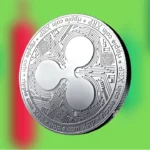The world of finance is ever-evolving, and the rise of altcoins is proof of that. Altcoins, or alternative cryptocurrencies, are digital assets that function as an alternative to traditional forms of currency like fiat money. With the increasing popularity and adoption of cryptocurrencies like Bitcoin and Ethereum, altcoins have emerged as a disruptive force in the financial industry, offering unique features and use cases that could potentially shape the future of finance.
In this blog post, we will explore the future of finance through the lens of altcoins, discussing their impact on the financial industry, their potential use cases, and the challenges they may face. Let’s dive in!
Understanding Altcoins
Altcoins are a type of cryptocurrency that are created as an alternative to Bitcoin, the first and most well-known cryptocurrency. While Bitcoin was introduced in 2009 as a digital currency that operates on a decentralized network, altcoins have followed suit with their own unique features, use cases, and technological innovations.
There are thousands of altcoins in the market, each with its own purpose and value proposition. Some of the most popular altcoins include Ethereum (ETH), Ripple (XRP), Litecoin (LTC), and Bitcoin Cash (BCH), among many others. These altcoins are often referred to as “major” or “top-tier” altcoins, as they have gained significant traction and recognition in the cryptocurrency ecosystem.
Unlike traditional currencies, altcoins are not issued or regulated by central banks or governments. They are typically created through a process called initial coin offerings (ICOs), where developers raise funds by selling a portion of the new cryptocurrency to investors. Altcoins are designed to function as digital currencies, but many also serve as platforms for decentralized applications (dApps) or provide specialized functionalities beyond simple transactions.
Altcoins as a Disruptive Force in Finance
The emergence of altcoins has disrupted the traditional financial landscape in several ways. Here are some key areas where altcoins have made an impact:
Decentralization: One of the fundamental principles of altcoins is decentralization. Unlike traditional financial systems where central banks and governments have control over the issuance and regulation of currency, altcoins operate on a decentralized network, often referred to as blockchain. This decentralization eliminates the need for intermediaries, such as banks, for transactions, making them faster, cheaper, and more transparent.
Financial Inclusion: Altcoins have the potential to bridge the gap in financial inclusion by providing access to financial services for the unbanked and underbanked populations. With altcoins, anyone with an internet connection can create a digital wallet and participate in transactions, without the need for a traditional bank account. This has the potential to empower individuals in developing countries, where access to banking services may be limited.
Borderless Transactions: Traditional cross-border transactions can be cumbersome, time-consuming, and costly. Altcoins offer a borderless transaction experience, enabling users to send and receive funds globally with minimal fees and delays. This has the potential to revolutionize international trade and remittance markets, making them more efficient and cost-effective.
Innovation and Disruption: Altcoins are not just about currency, but also about technological innovation. Many altcoins offer unique features and functionalities that go beyond traditional currencies, such as smart contracts, decentralized finance (DeFi) applications, and non-fungible tokens (NFTs). These innovations have the potential to disrupt traditional financial systems and reshape industries in novel ways.
Challenges and Risks
While altcoins hold significant potential, they also face challenges and risks that could impact their future in finance. Some of the challenges and risks associated with altcoins include:
Regulatory Uncertainty: The regulatory landscape around altcoins is still evolving, with different countries and jurisdictions having different regulations or even banning altcoins altogether. Regulatory changes or crackdowns on altcoins could affect their adoption and use cases, potentially limiting their growth and disrupting their potential.
Volatility and Risk of Loss: Altcoins are highly volatile and can experience rapid price fluctuations, which can lead to significant financial losses for investors or users. The lack of regulation and oversight also means that altcoins may be subject to market manipulation or scams, posing risks to unsuspecting investors.
Scalability and Technical Challenges: Altcoins, especially those with complex functionalities like smart contracts, face scalability and technical challenges. Blockchain networks may experience congestion, high fees, or slow transaction times during peak usage, which can hinder their usability and adoption.
Adoption and Education: Despite the growing popularity of altcoins, mainstream adoption and awareness still lag behind. Many people are not familiar with altcoins or do not understand their potential benefits and risks. Education and awareness efforts are needed to promote the adoption of altcoins and enable more widespread use cases.
- Read More: Altcoin vs Bitcoin: Which One Holds More Potential?
- Read More: Exploring Blockchain Security: Can Blockchain Be Hacked?
Conclusion
In conclusion, altcoins have emerged as a disruptive force in the finance industry, offering unique advantages and potential use cases that could reshape the future of finance. From payments and remittances to DeFi, tokenization, rewards programs, and virtual economies, altcoins are paving the way for a more decentralized, transparent, and efficient financial ecosystem.
However, they also face challenges and risks that need to be addressed for their continued growth and adoption. As the world continues to embrace the digital economy, altcoins are poised to play a significant role in shaping the future of finance. It’s essential to keep a cautious approach, do thorough research, and stay informed about the evolving landscape of altcoins to make informed decisions in this rapidly changing space.











